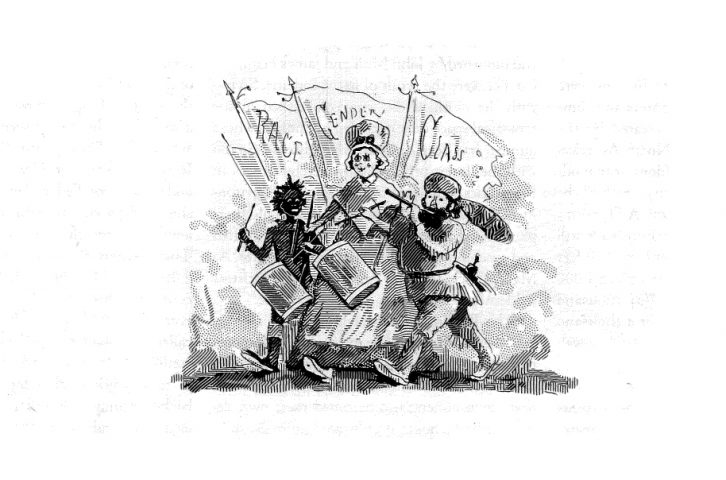George W. Bush is the first president with an MBA (from Harvard Business School, no less), but it's not clear that being a Master of Business Administration has made him a better Chief Executive. The disarray in Iraq, the debacle after Hurricane Katrina—these aren't exactly the kind of triumphs that the alumni office likes to boast about. Still, things could be worse. He might have gone to the Kennedy School.
Business schools are a relatively new institution: the MBA was invented in the Progressive Era as a way to abort future generations of robber barons. The idea was to train up a class of business administrators (the ethos was anti-entrepreneurial) who would expiate capitalism's sins by managing their corporations in keeping with the higher morality. The higher morality was whatever the spirit of the age revealed to professors and high-toned Protestant ministers. Over decades, the pursuit of ethical uplift waned and the pursuit of efficiency and new methods of reading a balance sheet waxed, paving the way for the increasingly empty trendiness of modern management books.
It's hard to say what President Bush absorbed from his management studies. We can only draw inferences, though eventually historians may know more. Defending Donald Rumsfeld a few weeks ago, Bush said, "I hear the voices, and I read the front page, and I know the speculation. But I'm the decider, and I decide what is best. And what's best is for Don Rumsfeld to remain as the secretary of defense." Being the decider-in-chief suggests one paradigm of modern management: the executive who makes the final decisions, the tough calls. He "hears" and even listens to others before deciding, but the point of a decision (from decidere, to cut off) is to be decisive—not to reason your way to a judgment that can be explained to others.
Bush's management style is long on decisions and short on explanations. He's apparently better at listening to others than questioning their views, which might seem to detract from his decisiveness. In other words, he prefers to have around him people whose judgment he trusts implicitly, even as he insists that they trust his implicitly. This isn't simple cronyism or "hackocracy," as the Left charges. But neither is it a model of political wisdom. It leads to a disinclination to deliberate, a reliance on peremptory assertions of subordinates' good character to quiet doubt about their judgments, and a certain habitual speechlessness. On ordinary rhetorical occasions, Bush and his text seem hardly acquainted. On great occasions, he tends to overshoot the mark, calling for impossibilities like an "end to evil." He lacks a rhetorical mean, much less the rhetorical mien that served Ronald Reagan so well.
Democrats usually turn for inspiration to the universities and law schools, Republicans to business and business schools. Republicans love to call for applying the businessman's common sense to government problems, like balancing the budget or rebuilding New Orleans. Rumsfeld, a former Fortune 500 executive, is applying business methods (just-in-time inventories, information networks, strict control of labor costs) to try to transform the Pentagon and, while he's at it, win the war in Iraq. The precedents aren't entirely encouraging. In the 1960s, Secretary of Defense Robert McNamara tried to revolutionize the Pentagon using the systems analysis techniques he'd championed in his former job as president of the Ford Motor Company. He succeeded in discrediting himself, the techniques, and the war he was trying to win.
Pray things work out better this time. In general, however, the analogy between business and politics so beloved by Republicans is a flawed one. At the simplest level, politicians report to a large electorate and have fixed terms of office, and businessmen do not; and although the latter can hire and fire at will, the former cannot, and thus face vast, recalcitrant bureaucracies.
Second, government deals not merely with property, vital as that is, but also with life and liberty. Government thus involves issues of national defense, criminal justice, and other "involuntary transactions" backed up by a monopoly on the legitimate use of force. Third, though both pursuits involve self-interest, economic self-interest is less complicated. By contrast, there are many forms of political self-interest, frequently in conflict: Should you desire security, or glory? Low taxes, or a balanced budget? Much political skill must be devoted to persuading people where, exactly, their interest lies. (This is the rhetorical part, at which Bush doesn't excel.) Finally, and most significantly, politics has to reconcile multiple goals—consent, security, liberty, prosperity, justice, virtue—in the presence of continuing disagreements about both means and ends.
These inherent differences frustrate, eventually, all businesslike schemes of government. Too bad they don't teach that in business school.


